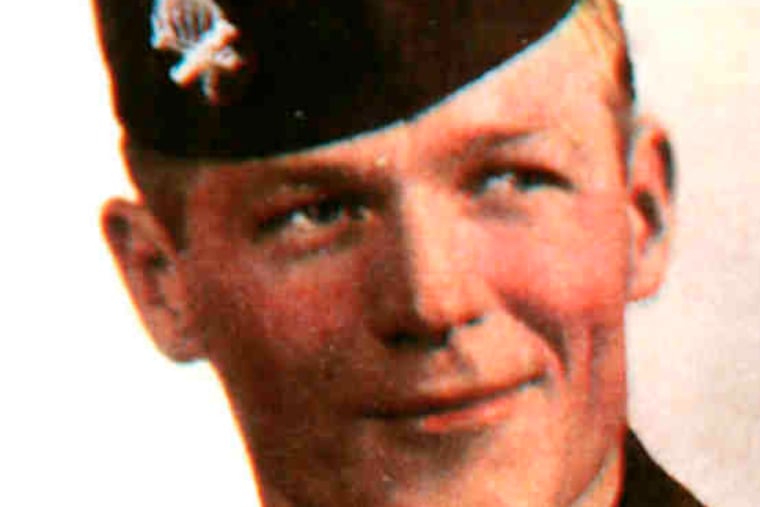Richard Winters, 92, 'Band of Brothers' hero
In the HBO miniseries Band of Brothers, Richard "Dick" Winters was portrayed as a quietly courageous leader during the Allied campaign across Europe in World War II.

In the HBO miniseries Band of Brothers, Richard "Dick" Winters was portrayed as a quietly courageous leader during the Allied campaign across Europe in World War II.
And that summed up the real man, said William "Wild Bill" Guarnere and Edward "Babe" Heffron, two South Philadelphians who served under the commander who led fierce battle charges, yet never cursed.
On Sunday, they got word that Mr. Winters, 92, had died at an assisted-living facility in Palmyra, Pa. His family announced his death after a private funeral was held Saturday. He had Parkinson's disease.
His wife, Ethel, is planning a public memorial in Hershey, Pa., where they had lived for many years, in February or March, said retired Army Col. Cole C. Kingseed, a family friend.
"I would have followed him from here to hell to eternity," said Guarnere, 87, who served with Heffron in Easy Company, made famous by the 2001 miniseries and the 1992 book it was based on, by historian Stephen Ambrose.
"His favorite motto was, 'Follow me,' " Guarnere said.
"He was never in the back. He was always up front," said Heffron, also 87.
Mr. Winters was awarded the Distinguished Service Cross, the second-highest Army decoration, for leading an attack on a German battery position during the D-Day invasion. He had been recommended for the Medal of Honor, which his supporters believe he should have received.
"I just knew him for what he was - a great guy, a great leader, a very, very intelligent man," Heffron said. Mr. Winters was born in Lancaster County on Jan. 21, 1918. His early heroes were Babe Ruth and Milton S. Hershey, according to biographical information on his website. He graduated from Franklin and Marshall College in 1941 with a business major. He then volunteered for the Army.
After the bombing of Pearl Harbor, Mr. Winters applied for officer candidate school and graduated as a second lieutenant of infantry. He then volunteered for airborne training and trained as an original member of Company E, or Easy, of the 506th Parachute Infantry Regiment.
He became leader of Easy Company after the Normandy landing and gradually advanced to Germany, but not without enduring hardship and numerous casualties.
During a brutal winter in Bastogne during the Battle of the Bulge, Guarnere lost his right leg to an artillery shell explosion.
The members of Easy Company were among the first soldiers to enter Adolf Hitler's Eagle's Nest, his mountain sanctuary at Berchtesgaden.
Mr. Winters, who left the service as a major, married Ethel Estoppey in 1948. But he was called back to active duty for the Korean War, during which he served as a training officer. As a private citizen, he operated a company selling animal feed.
Besides his wife, Mr. Winters is survived by a son, Tom, and a daughter, Jill, said Kingseed, former chief of military history at the U.S. Military Academy.
Besides being in the Ambrose book and the miniseries, of which Steven Spielberg and Tom Hanks were executive producers, Mr. Winters published his own memoirs, Beyond Band of Brothers, in 2006.
Guarnere and Heffron are part of a campaign to establish a monument to Mr. Winters and D-Day leadership on the Normandy coast. Former Phillies pitcher Curt Schilling is a national spokesman for the project.